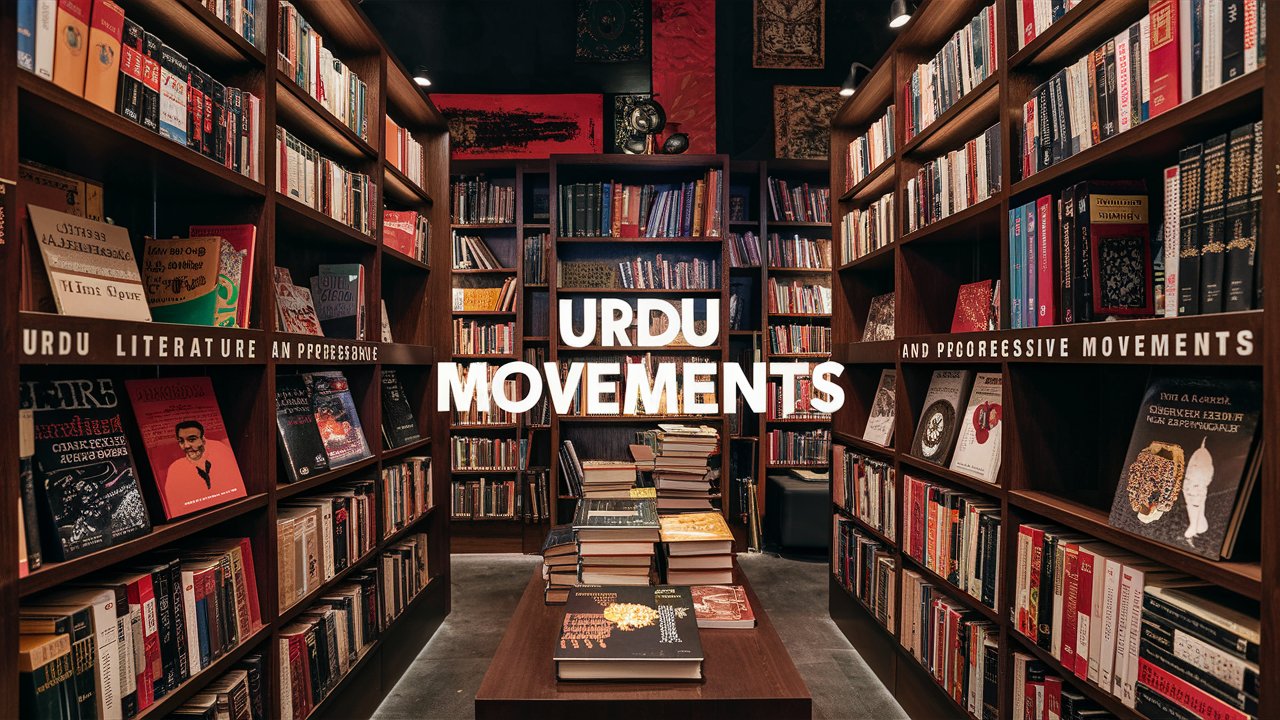3. Urdu literature and progressive movements. 2019

Introduction
Urdu literature has a long and rich history, dating back to the 13th century. Over the centuries, Urdu literature has evolved and adapted to changing social, political, and cultural contexts. This essay examines the relationship between Urdu literature and progressive movements in South Asia, particularly during the 20th century.
Urdu Literature and Progressive Movements

Urdu literature played a vital role in the development of progressive movements in South Asia during the 20th century. Progressive literature, also known as “Taraqqi Pasand” literature, emerged as a response to the political, social, and economic challenges facing South Asia at the time.
The progressive movement was inspired by socialist and communist ideologies and aimed to address issues such as poverty, inequality, and oppression. Progressive writers used literature as a tool for social and political change and sought to educate and inspire people to take action against injustice.
Progressive literature was characterized by its focus on social and political issues, its rejection of traditional literary forms, and its use of accessible language. Progressive writers often used satire, humor, and irony to criticize social and political institutions and to expose the hypocrisy of those in power.
One of the most significant contributors to Urdu progressive literature was the renowned writer, Faiz Ahmed Faiz. Faiz’s poetry addressed themes such as social justice, freedom, and revolution and inspired generations of progressive activists in South Asia. His poems, such as “Hum Dekhenge” and “Bol,” became anthems for the progressive movement and continue to inspire people today.
Another prominent progressive writer was Saadat Hasan Manto, who used his writing to expose the hypocrisies of society and to challenge traditional values. Manto’s stories addressed themes such as poverty, prostitution, and violence and were often banned for their controversial content.
Urdu Literature and Feminism
Urdu literature also played a significant role in the development of feminist movements in South Asia. Feminist writers used literature as a tool for challenging patriarchal norms and promoting women’s rights.
One of the most influential feminist writers was Ismat Chughtai, who addressed themes such as sexuality, gender roles, and women’s oppression. Chughtai’s stories, such as “Lihaaf” and “Terhi Lakeer,” challenged traditional gender roles and exposed the inequalities faced by women in South Asian society.
Another influential feminist writer was Qurratulain Hyder, who wrote novels that addressed themes such as women’s education, political participation, and economic independence. Hyder’s novel “Aag ka Darya” explored the lives of women throughout South Asian history and highlighted the challenges they faced.
The Impact of Urdu Literature on Progressive and Feminist Movements
Urdu literature played a significant role in shaping progressive and feminist movements in South Asia. Literature provided a platform for writers to express their views and to challenge social and political norms. It also helped to educate and inspire people to take action against injustice and to fight for social and political change.
Progressive and feminist literature helped to create a sense of community among activists and provided a shared language for discussing social and political issues. Literature played a critical role in creating a sense of solidarity among people who were working towards a common goal, and it helped to create a space for marginalized voices to be heard.
The impact of progressive and feminist literature is evident in the social and political changes that have taken place in South Asia over the past century. Progressive and feminist movements have played a significant role in promoting democracy, human rights, and social justice, and have helped to shape the region’s political landscape.
Conclusion
In conclusion, Urdu literature played a significant role in the development of progressive and feminist movements in South Asia. Literature provided a platform for writers to express their views and to challenge social and political norms. Progressive and feminist literature helped.